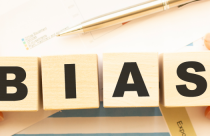What if You Lose Confidence in Your Research?

Research reproducibility is the foundation of scientific research. Transparency in research design and methodology, as well as data collection, analysis, and storage is critical to ensure this credibility. The ability of other scientists to replicate novel research is another important factor. But the reproducibility crisis is threatening scientific integrity. What happens if a researcher loses confidence in the results of a study they have already published? The Loss of Confidence project encourages researchers to disclose errors in their own work publicly. Is it possible to declare a loss of confidence without harming your career? Let us explore this issue.
Managing the Reproducibility Crisis
The scientific community has been trying to find ways to deal with the reproducibility crisis. A recent study published in Nature found that only 6 out of 53 major cancer studies could be replicated. Many factors have contributed to this problem. Authors of any research or study have knowledge of the research design, methodology, and data handling and analysis. Unless the authors share the data with the entire community, it is difficult to evaluate the value of a study result or replicate it well. Scientists are also disincentivized from publishing negative research results or engaging in replication studies.
If others question your research, what should you do? Some researchers react defensively, but this is not always the case. Dana Carney, who became famous for her study on power poses, said in 2016 that she no longer believed the results of her research were true. She explained this was because others who tried to replicate her work could not.
Although Carney stated she had lost confidence in her findings, she insisted that the paper should not be retracted. Her reasoning was that the respective paper was based on a theory that could be proved at the time of publishing. The editor of the journal Psychological Science that published the study, stated that he was not going to pursue retraction immediately. He added that although some of the data provided in the paper were questionable, retraction should not be the only option.
The Loss of Confidence Project
Many researchers appreciated Carney’s willingness to come forward and state her loss of confidence in her own research. Her statement inspired an ambitious new endeavor called the Loss of Confidence Project. A team of researchers launched the project to encourage researchers for announcing a loss of confidence in their work. They think that this project will provide an easy platform to authors for sharing their loss of confidence in their research findings, with the scientific community. They also hope that it will destigmatize sharing loss of confidence statements and encourage scientific transparency.
Mixed Response from Researchers
There have not been many submissions yet. However, the project leaders expect that more will come. While some researchers have reacted positively to the project, others are more skeptical. Rebecca Willén, an independent psychology researcher, said that current time is the best to come forward with loss of confidence statements. This is due to the fact that the scientific community is appreciating and accepting such disclosures.
But every action has an equal and opposite reaction. Rebecca also fears that the project could negatively impact one’s career. Julia Rohrer, a team member of the Loss of Confidence project, admitted that it is an idealistic way of approaching the problem of scientific transparency. Marcus Munafò, a biological psychologist at the University of Bristol in the U.K., said the project might be ahead of its time, but praised its intentions. He pointed out there is still not much emphasis on replicating studies and reporting null results.
Would you feel comfortable disclosing a loss of confidence in your research? Please let us know your thoughts in the comments section below.





![What is Academic Integrity and How to Uphold it [FREE CHECKLIST]](https://www.enago.com/academy/wp-content/uploads/2024/05/FeatureImages-73.png)



